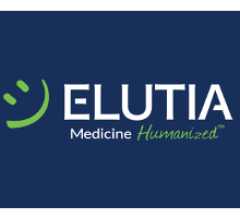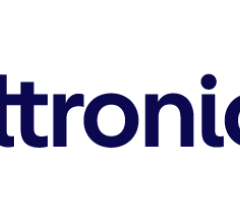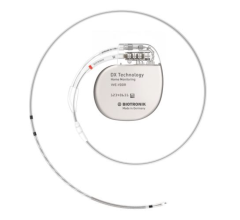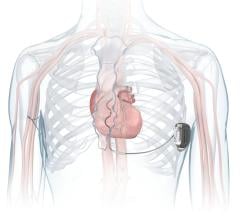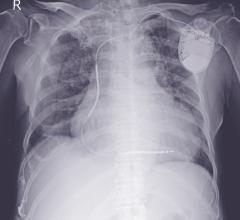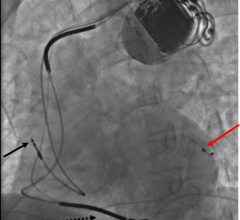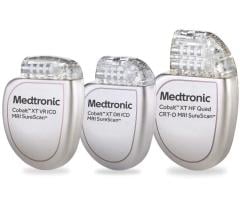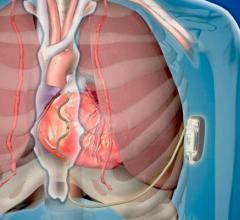September 18, 2007 - Baseline data from the largest study of U.S.-based heart failure (HF) patients in the outpatient setting demonstrate significant gaps and variation in medical care, particularly for women and the elderly, according to findings from the Registry to Improve the Use of Evidence-Based Heart Failure Therapies in the Outpatient Setting (IMPROVE HF) study.
The study, sponsored by Medtronic Inc., was presented in a poster session at the Heart Failure Society of America Annual Scientific Meeting.
"This is the first study of its kind to document the extent to which heart failure patients in the outpatient setting are receiving optimal treatment, as defined by the most recent treatment guidelines," said Gregg C. Fonarow, M.D., co-chair of the IMPROVE HF Scientific Steering Committee and Professor of Medicine at the University of California at Los Angeles.
"The IMPROVE HF data represents real-world management of heart failure patients in a variety of outpatient cardiology practices from all regions of the United States. It shows us that there are gaps and significant variation across these practices in the use of evidence-based, guideline-recommended therapies in eligible patients, especially female and elderly patients," added Fonarow.
Key baseline results from IMPROVE HF include:
* Substantial variation exists across outpatient cardiology practices in the type of treatment provided to heart failure patients. Conformity with performance measures (in eligible patients only) for practices (10th-90th percentiles) was:
-ACE inhibitors/ARB (angiotensin II receptor blockers) (67.9-90.4 percent)
-Beta-blockers (72.3-94.4 percent)
-Aldosterone antagonists (7.1-63 percent)
-Cardiac resynchronization therapy (CRT), including both CRT-Defibrillation and CRT-Pacing only devices (0-80 percent)
-Implantable cardioverter defibrillator (ICD) therapy, including both ICD only and CRT-D devices (26.3-76.2 percent)
-Patient education (29.1-88.9 percent)
-Anticoagulation for atrial fibrillation (AF) (44.4-87.5 percent)
-Less than 30 percent (27.5 percent) of patients assessed at baseline were being treated with all therapies for which they were eligible.
-Eligibility for certain treatments is based upon documented medical information such as New York Heart Association (NYHA) functional class; yet, only 31 percent of records documented NYHA class.
-Women were less likely than men to receive an implantable cardioverter defibrillator (ICD) when indicated (43.1 percent vs. 53 percent; p less than 0.001), education about their condition (59.7 percent vs. 61.9 percent; p=0.026), or anticoagulation treatment for atrial fibrillation (64.8 percent vs. 70.6 percent; p=0.004).
-Older patients were less likely than younger patients to receive certain types of guideline-indicated interventions - particularly ICD/CRT-D therapy
-43 percent in patients greater than 76 years
-57.2 percent in patients greater than 64 to less than or equal to 76 years
-52 percent in patients less than or equal to 64 years; p less than 0.001
IMPROVE HF is a large-scale, prospective study involving approximately 40,000 HF patients from approximately 150 cardiology practices in the U.S. The study is designed to:
* characterize the management of chronic systolic heart failure (EF less than or equal to 35 percent) in the outpatient care setting
* assess the effects of practice-specific performance-improvement measures on patient care
* provide insight into the issues that impede implementation of HF treatment guidelines, such as the documentation of NYHA (New York Heart Association) functional class
* identify methods and tools that will improve the quality of HF care in the outpatient setting, such as patient education
The primary objective of the study is to determine if a relative 20 percent or greater improvement in at least two of the following seven performance measures is possible:
1. ACE inhibitors/ARB (angiotensin II receptor blockers)
2. Beta-blockers
3. Aldosterone antagonists
4. Anticoagulation for atrial fibrillation
5. ICD therapy - including both ICD only and CRT-D devices
6. CRT therapy - including both CRT-D and CRT-P only devices
7. Heart failure patient education such as smoking cessation, exercising, diet, and restricting salt intake
For more information: www.medtronic.com and www.IMPROVEHF.com


 January 13, 2026
January 13, 2026 
